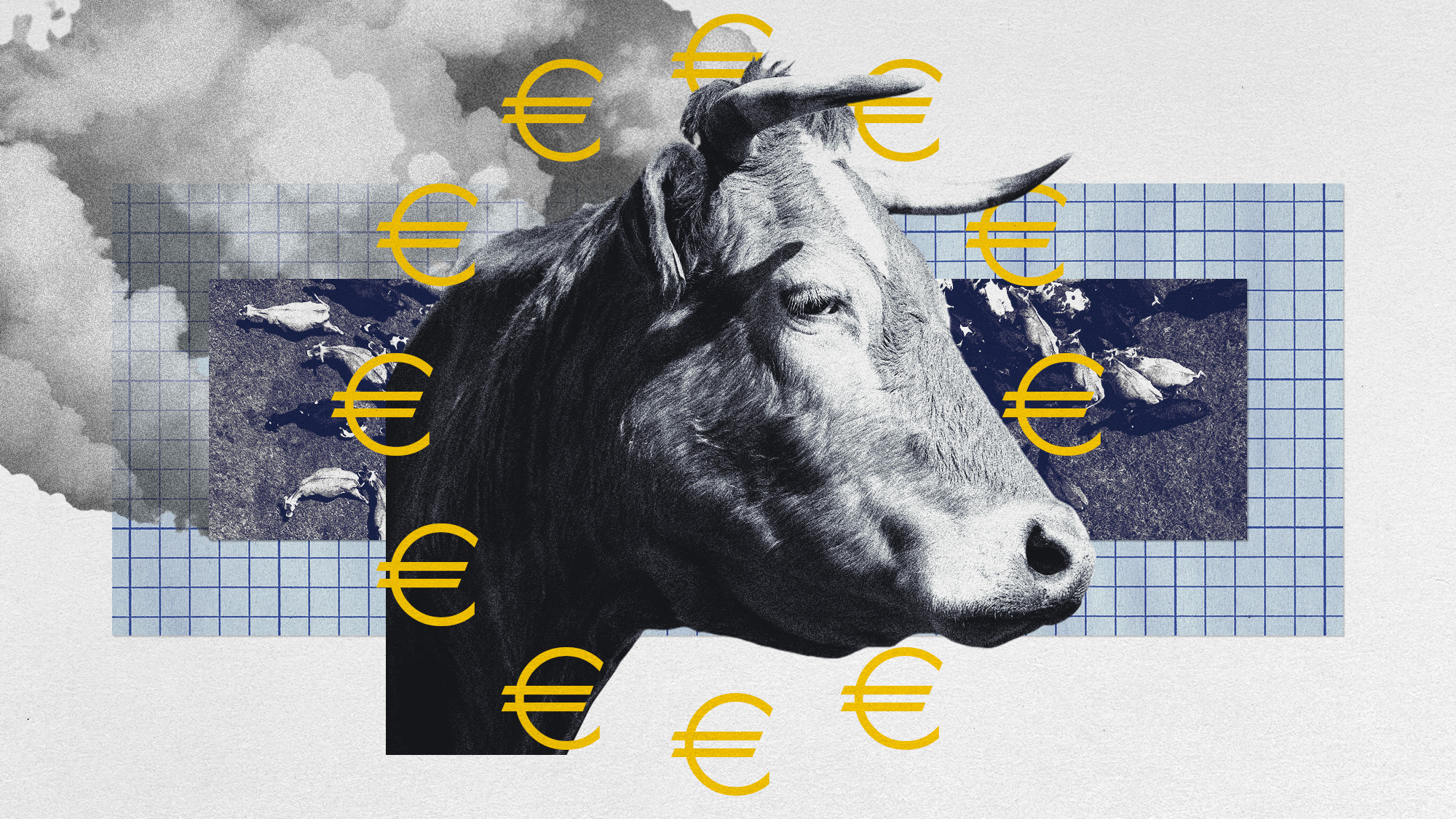Gassy livestock are going to be taxed in Denmark
Cows are about to cost more moola


A free daily email with the biggest news stories of the day – and the best features from TheWeek.com
You are now subscribed
Your newsletter sign-up was successful
Cows, sheep and pigs emit a surprising amount of greenhouse gases, making livestock farming one of the more polluting areas of agriculture. To account for this, Denmark has issued a tax on the emissions from livestock beginning in 2030. They will be the first country to institute this type of tax.
The cow tax
Livestock are a major source of greenhouse gases, mainly methane. While released in less quantity than carbon dioxide, methane is 80 times more potent in trapping heat in the atmosphere. In its goal to fight global warming and reduce greenhouse gas emissions by 70% from 1990s levels, Denmark has decided to institute a tax on livestock emissions, the first of its kind. "We will be the first country in the world to introduce a real CO2 tax on agriculture. Other countries will be inspired by this," Taxation Minister Jeppe Bruus Christensen of the center-left Social Democrats said in a statement.
The tax will amount to "300 krone ($43) per tonne (1.1 ton) of CO2-equivalent emissions from livestock from 2030, rising to 750 krone ($107) in 2035," said CNN. "A 60% tax break will apply, meaning that farmers will effectively be charged 120 krone ($17) per ton of livestock emissions per year from 2030, rising to 300 krone ($43) in 2035." The deal was negotiated between Denmark's center-right government and representatives for the farmers, and other members of the industry and related unions. "The whole purpose of the tax is to get the sector to look for solutions to reduce emissions," Torsten Hasforth, the chief economist of green think tank Concito, said to CNN.
The Week
Escape your echo chamber. Get the facts behind the news, plus analysis from multiple perspectives.

Sign up for The Week's Free Newsletters
From our morning news briefing to a weekly Good News Newsletter, get the best of The Week delivered directly to your inbox.
From our morning news briefing to a weekly Good News Newsletter, get the best of The Week delivered directly to your inbox.
Livestock limits
Livestock in the agricultural system account for approximately 6.2 billion tons of CO2 equivalent emissions per year, or around 12% of total anthropogenic greenhouse gas emissions and 40% of total emissions from agriculture systems, according to the Food and Agriculture Organization of the United Nations. About 90% of the methane from raising livestock "comes from the way they digest, through fermentation, and is released as burps through their mouths," said The Associated Press.
Specifically, a Danish cow produces on average 6 metric tons of CO2 equivalent per year. "We have succeeded in landing a compromise on a CO2 tax, which lays the groundwork for a restructured food industry — also on the other side of 2030," Maria Reumert Gjerding, the head of the Danish Society for Nature Conservation, said to the AP. However, not everyone was on board with the decision. "We recognize that there is a climate problem, and Danish agriculture will help solve it," Peter Kiær, the chairman of the Danish farmers' group Bæredygtigt Landbrug, said in a statement. "But we do not believe that this agreement will solve the problems, because it will put a stick in the wheel of agriculture's green investments."
Previously, New Zealand passed a similar law to take effect in 2025, but it was removed following intense criticism from farmers and a rightward shift in government. Denmark faced similar criticism but managed to reach the current agreement. "Danish farmers had expressed concerns that the country's climate goals could force them to lower production and cut jobs," said Reuters. The proposed tax break was negotiated so that farmers could "maintain their business."
A free daily email with the biggest news stories of the day – and the best features from TheWeek.com
Devika Rao has worked as a staff writer at The Week since 2022, covering science, the environment, climate and business. She previously worked as a policy associate for a nonprofit organization advocating for environmental action from a business perspective.
